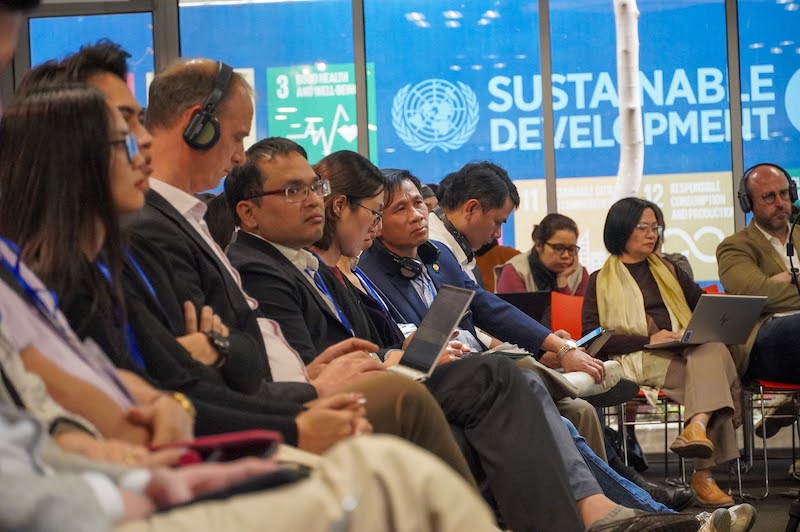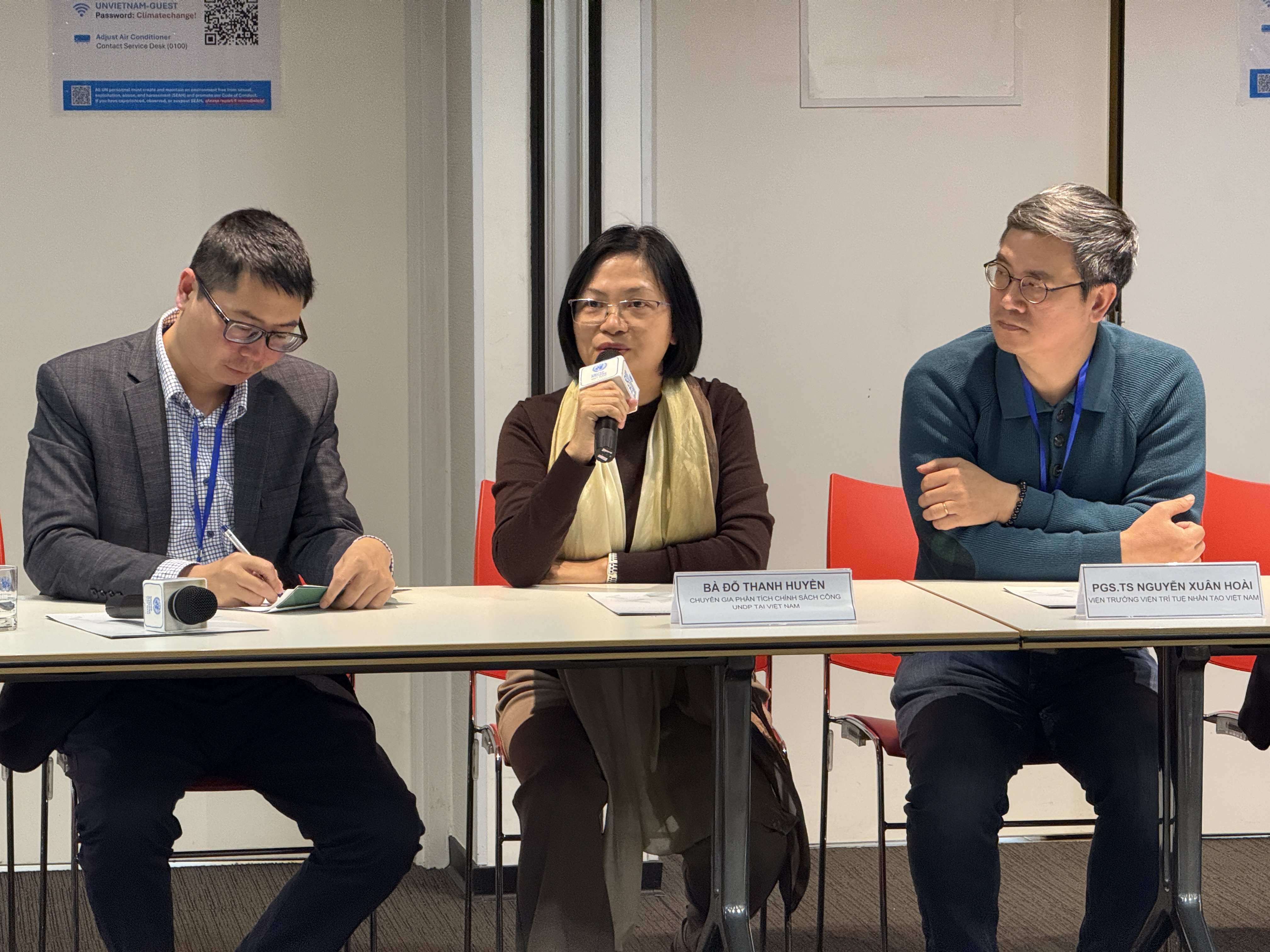Unlocking AI’s potential in Vietnam’s public sector: Challenges and solutions
Do Thanh Huyen, Policy Analyst and Program Manager at the United Nations Development Program (UNDP) in Vietnam, spoke to The Hanoi Times about the current state of AI adoption in the public sector and proposed key solutions to enhance its effectiveness.
What is your assessment of the effectiveness of AI applications in Vietnam's public sector?

An event announcing the latest findings on the AI landscape attracts local and international delegates. Photos: UNDP Vietnam
Assessing the effectiveness of AI applications in Vietnam’s public sector is challenging because there is not yet a well-structured, fully developed AI implementation. The main issue is the lack of four essential factors - the "4Ms": Machinery (equipment and infrastructure), Mechanism (policies and regulations), Manpower (skilled workforce), and Money (budget and funding).
Currently, AI adoption remains at a basic level, primarily limited to virtual assistants (chatbots) integrated into online public service portals. A 2024 UNDP and IPS evaluation of 63 provincial public service portals found that 37 provinces have chatbots, but only 14 offer interactive features, including many ineffective ones. This reflects a lack of comprehensive understanding and investment at the local level in the effective application of AI in public services.
Beyond the technological and policy challenges, I see citizen behavior and trust as a major obstacle. Many people still prefer face-to-face interactions with public service officials, believing that in-person consultations provide clearer guidance and faster solutions. Overcoming this mindset will be critical to increasing the adoption of AI-driven public services.
However, I think there is hope for improvement. The introduction of the Resolution 57 which was signed by the Party General Secretary To Lam on breakthroughs in science and technology development, innovation and digital transformation is expected to address policy and infrastructure gaps, enhance resource allocation, and lay the groundwork for a more effective AI-driven public sector in Vietnam.
Why is it important for AI to have natural interaction in Vietnamese?

Do Thanh Huyen, Policy Analyst and Program Manager at the UNDP Vietnam (center), speaks at an Al event.
If we want AI to interact naturally with users, we need to build it in Vietnamese and make sure it understands the language in the most natural way possible.
To do this, the process must be accurate. AI should not add or distort elements that are not in line with Vietnamese culture and communication styles. Language is the foundation of AI, and the amount of training data available is critical.
The fact that about 90% of AI training data is in English, that's why AI struggles to communicate naturally in Vietnamese for the country home to many dialects.
AI requires a strong linguistic infrastructure to benefit Vietnamese consumers. A dataset representing natural language in different geographical locations needs to be used for training. More than just a translation tool, AI needs to understand human communication. Only then can it truly interact with users in a meaningful way.
What do you recommend to help overcome the bottlenecks in public administration?
The first priority is to invest in the synchronization of database systems by centralizing them in a National Data Center - a key initiative that the government is actively developing. The goal is to create a unified platform where citizens, businesses, and organizations can access and use data efficiently.
In addition, it needs to ensure seamless interaction between the national data center and local data hubs. These hubs will enable both distribution and consolidation of information, but this requires a robust infrastructure to support smooth data transmission. In particular, connectivity must reach remote and rural communities to ensure that they have the same access to this database system as urban areas.
However, bringing 100% of public services online is not ideal. Many people in remote areas and vulnerable groups would struggle to access digital services. So while expanding online services is critical, we must also ensure that alternative, accessible options remain available for those who need them.
Thank you for your time!











